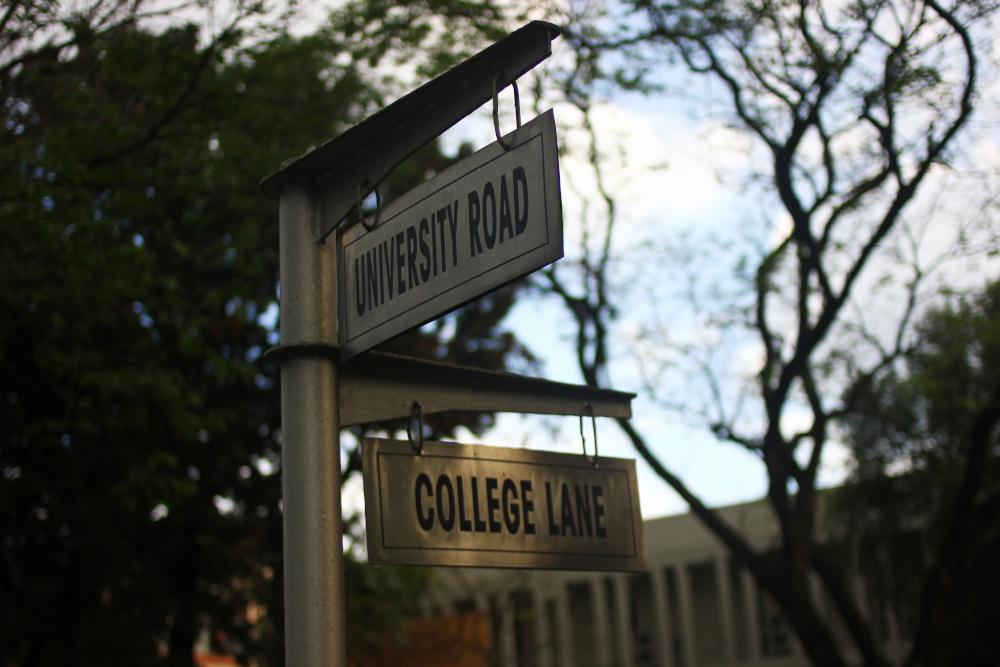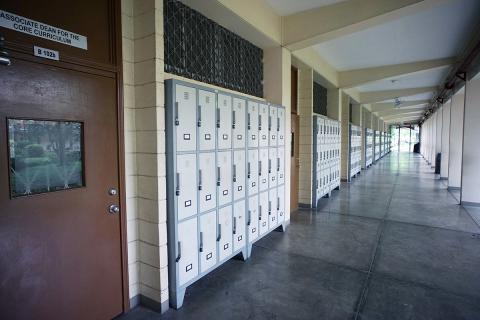The Ateneo College Co-Curriculum
Integrated Ateneo Formation (InAF) Program
The Integrated Ateneo Formation (InAF) program aims to form persons-for-and-with-others who will contribute meaningfully to the transformation of Philippine society as servant-leaders engaged in various fields of endeavor.
In line with the formation of the whole person characteristic of Jesuit education, the InAF program seeks to provide students with opportunities that can help develop and integrate the personal, academic, socio-cultural, and spiritual dimensions that comprise each student’s person.
In forming students to be professionals of conscience, competence, compassion, and commitment, the InAF program seeks to develop graduates who are: guided by Ignatian discernment and rooted in a personal relationship with God; able to apply their academic and professional training in the service of nation building; critically rooted in their culture; conscious of their responsibilities as global citizens; and strongly oriented to faith and justice.
To achieve these goals, all undergraduate students undergo four programs as part of their holistic formation within the curricular framework of Ateneo college education: the Introduction to Ateneo Culture and Traditions (InTACT); the Sophomore Formation Program; the Junior Formation Program; and the Senior Integration Program (SIP). These programs are coordinated by the Office of the Vice President for Mission Integration and involve the following formation offices: the Office of Campus Ministry; the Office of Guidance and Counseling; the Office of Placement and Career Services; the Office for Social Concern and Involvement; the Office of College Athletics; and the Office of Student Activities.
Introduction to Ateneo Culture and Traditions (InTACT):
First Year
The Introduction to Ateneo Culture and Traditions (InTACT) Program is a year-long formation program that aims to assist first-year students in their transition to Ateneo college life, provide opportunities for continuing self-discovery and greater self-awareness, and introduce them to the University’s culture and traditions which are rooted in Filipino, Catholic, and Jesuit values.
Each first-year block is placed under the care of a homeroom adviser (who is a faculty member or a formation professional) and a partner student facilitator who handle the weekly homeroom sessions and conduct individual consultations aimed at helping first-year students get to know themselves better as they undergo the Ateneo brand of holistic formation.
In partnership with the Social Sciences core course, Understanding the Self (SocSc 11), first-year students undergo the Binhi Program – a whole-day trip to a marginalized community where students are given the opportunity to interact with people often considered outside their social milieu or be exposed to various institutional advocacy programs. These interactions which will be integrated into the discussions in SocSc 11 and InTACT classes provide the experiential basis for students to reflect on how the self is a product of socialization and one’s environment.
The InTACT Program also aims to introduce first-year students to Ignatian Spirituality through various modes of a Coming Home Recollection (blended, half-day, and whole-day). These are spaces that provide freshies the opportunity to encounter God, themselves, and their peers through silence, prayer, reflection, and group spiritual conversations. It is hoped that through this experience, students will realize and cherish their belovedness through God’s love and mercy, express gratitude that allows them to see God and goodness in both positive and negative circumstances of their lives, and develop a healthy sense of self.
Physical Education
Students are required to take four Physical Education (PE) classes. To service this requirement, the PE program offers a variety of classes for first and second year students with the primary objective of achieving a state of mens sana in corpore sano – a sound mind in a sound body.
These PE classes help students understand and appreciate in depth the importance of physical activity in sustaining or improving their level of fitness which further contributes to the overall development of their health and wellness.
Teaching our students to care for and value their health at the early stages of their college life helps establish a solid foundation, not only to make them resilient and capable of coping with the physical, emotional, and mental stress brought about by the demands of academic life but also more importantly, to help students mature into becoming healthy and productive members of society.
Sophomore Formation Program:
Second Year
The Sophomore Formation Program seeks to provide all second-year students the opportunity to further explore and understand the larger societal context in which they find themselves.
In partnership with the Theology of the Catholic Social Vision course (THEO 12), sophomores undergo an area engagement experience through the National Service Training Program 11 (NSTP 11) or Punla Program. The area engagement experience will allow them to have direct personal contact with individuals and communities living on the margins of Philippine society. In the face of these experiences, students are tasked to analyze community and sectoral issues from a structural and multi-disciplinary perspective. They are likewise guided through varied modes of spiritual formation programs (a whole-day recollection, a half-day recollection, or an art recollection) to critically reflect on their faith, recognize inner movements during their sector engagement, and realize the significant connection and impact of outreach experiences and interior promptings on their lives. These spiritual formation activities help students develop a compassionate orientation toward their kapwa – inspired by Jesus’ example in the Gospels.
Through this formative process, it is hoped that sophomores may broaden their understanding of the world around them, deepen their compassion for and solidarity with the poor and the marginalized, and discern how they can be witnesses of a life oriented to faith and justice.
Junior Formation Program:
Third Year
The Junior Formation Program strives to further develop the capacity of third-year students to be persons of discernment, learning, and action by providing them opportunities to apply their disciplinary and professional training concretely in service of the needs of communities or institutions and by offering them spaces for reflection and prayer to discern the unique and personal vocation to which each student is called.
In partnership with the Social Sciences core course in the third year —The Economy, Society, and Sustainable Development (SocSc 13)—and particular major subjects in various academic disciplines, third-year students undertake service-learning initiatives as part of the National Service Training Program 12 (NSTP 12). These service-learning initiatives are “credit-bearing educational experience[s] in which students participate in an organized service activity that meets identified community needs [and] reflect on the service activity in such a way as to gain further understanding of course content, a broader appreciation of the discipline, and an enhanced sense of civic responsibility.”1
Aside from engaging in service-learning initiatives that serve as concrete applications of one’s field of study, juniors likewise undergo a half-day recollection that seeks to guide them through a process of Ignatian discernment focused on one’s vocation – whether it is choosing a certain career path or a particular state of life, with its own crosses and challenges.
During the recollections, students have the opportunity to listen to and interact with resource speakers representing different states of life (single, married, religious, clerical, or ordained) and various careers or professions, and how they were able to embrace commitment despite their own questions and struggles. Other spaces for reflection, prayer, and group spiritual conversations help them deepen their understanding and appreciation of the Cross in their life. It is hoped that third-year students will experience greater trust and courage amidst the difficulties and challenges of life.
Senior Integration Program (SIP):
Fourth Year
The Senior Integration Program (SIP) endeavors to help graduating students reflect on and integrate their Ateneo college experience in light of their life’s vocation and the call to be leaders in service of God’s mission. By helping seniors discern about life-directions and how their respective disciplines and future career decisions can respond effectively to societal needs, the program seeks to form graduates who will aspire towards greater personal wholeness while continuously engaging with the world as agents of change.
Through guidance testing, career counseling, placement talks, and a Career Fair, future graduates are provided various opportunities to meaningfully explore career options.
To deepen the process of continuing discernment, seniors have the opportunity to participate in one of these spiritual formation programs: a half-day recollection, a whole-day recollection, or a guided 5-week First Spiritual Exercises program. They can also engage in individual conversation (IC) with their campus ministers across the semester. These offerings hope to aid them in recognizing and appropriating one’s vocation as a mission that responds to personal and social realities grounded in engaged citizenship and Ignatian spirituality.
While waiting for their commencement exercises at the end of the school year, they are invited to join the annual Seniors Ignatian Silent Retreat (3-day, 5-day, or 8-day retreat) as a way to culminate their Ateneo journey.

